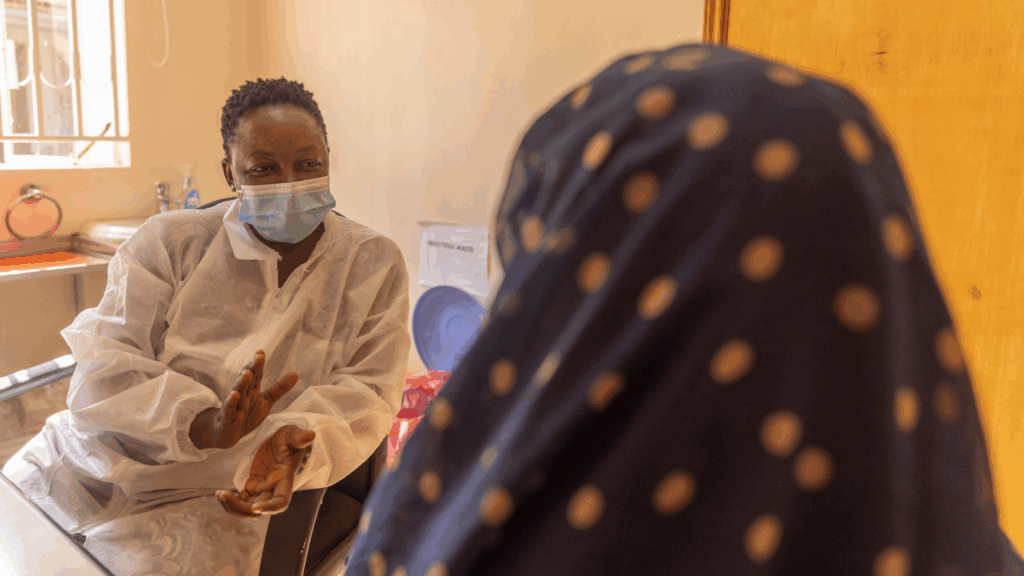July 31, 2025
IAVI announces first enrollment in tuberculosis epidemiology study
This study supports the preparation for late-stage tuberculosis (TB) vaccine efficacy trials by providing key epidemiological data.

Designing TB vaccine efficacy trials is a challenging proposition. In order to demonstrate efficacy in preventing TB disease, clinical research centers that recruit and enroll participants to test TB vaccines must be located in areas with high burdens of TB. Without high levels of TB transmission in a location where the vaccine is being tested, a study cannot successfully evaluate whether or not the vaccine is effective and produce statistically significant results from the clinical trial. IAVI bolsters its TB vaccine clinical trial design with carefully designed epidemiological studies to assess, down to the hyper-local level, on-going TB transmission in and around the locations of partner clinical research centers.
IAVI is pleased to announce the onset of a new TB epidemiological study, IAVI X103 HOPE (Health Outcome Preparedness using Epidemiology), which screened its first participant on July 22, 2025 at Ubuntu Clinical Research in Krugersdorp, South Africa. This cross-sectional observational cohort study will enroll approximately 1,200 adolescent and adult participants at three clinical research centers (CRCs): Kenya Medical Research Institute, in Siaya, Kenya; Medunsa Clinical Research Unit, in Ga-Rankuwa, South Africa, and Ubuntu Clinical Research, in Krugersdorp, South Africa. Participants will be evaluated through face-to-face structured interviews that will obtain data including demographic, location-based and behavioral data and a comprehensive medical history. The interview will be followed by testing to assess the IGRA status of participants via a blood test that tests for exposure to Mycobacterium tuberculosis, sometimes described as latent TB. Additional tests will be conducted for TB disease, HIV, and pregnancy. All participants will be referred onwards for additional medical care as needed.
Statistical analyses will demonstrate IGRA positivity across participants, and spatial analytical techniques will be applied to identify and visualize clustering patterns of IGRA positivity rates across the CRC recruitment population.
In February 2025, IAVI administered the first doses of TB vaccine candidate MTBVAC in a Phase 2b clinical trial designed to evaluate MTBVAC’s efficacy in preventing TB disease, IAVI C113. This study, IAVI X103 HOPE, will be conducted in parallel with IAVI C113 and will help inform trial design for IAVI’s efforts to bring novel TB vaccine candidates through late-stage clinical trials. This study is generously supported by the German government through the KfW Development Bank.
“It’s very exciting to see the start of this important study. Detailed epidemiological data gives us crucial insight into disease burden at the local level, enabling successful study design and execution for large-scale efficacy trials,” said Swati Gupta, IAVI’s vice president, emerging infectious diseases, and head of epidemiology. “This study will progress not only IAVI’s IMAGINE study but will also help support trial design for future TB vaccine efficacy trials.”
IAVI X103 will help to characterize recruitment populations within CRC catchment areas and prepare to conduct late-stage TB vaccine efficacy trials. With over 10.8 million people becoming newly ill with TB each year, it remains an urgent global priority to bring a new and effective TB vaccine to licensure. The design of late-stage efficacy trials is a critical component of IAVI’s efforts to bring a new tuberculosis vaccine to licensure.